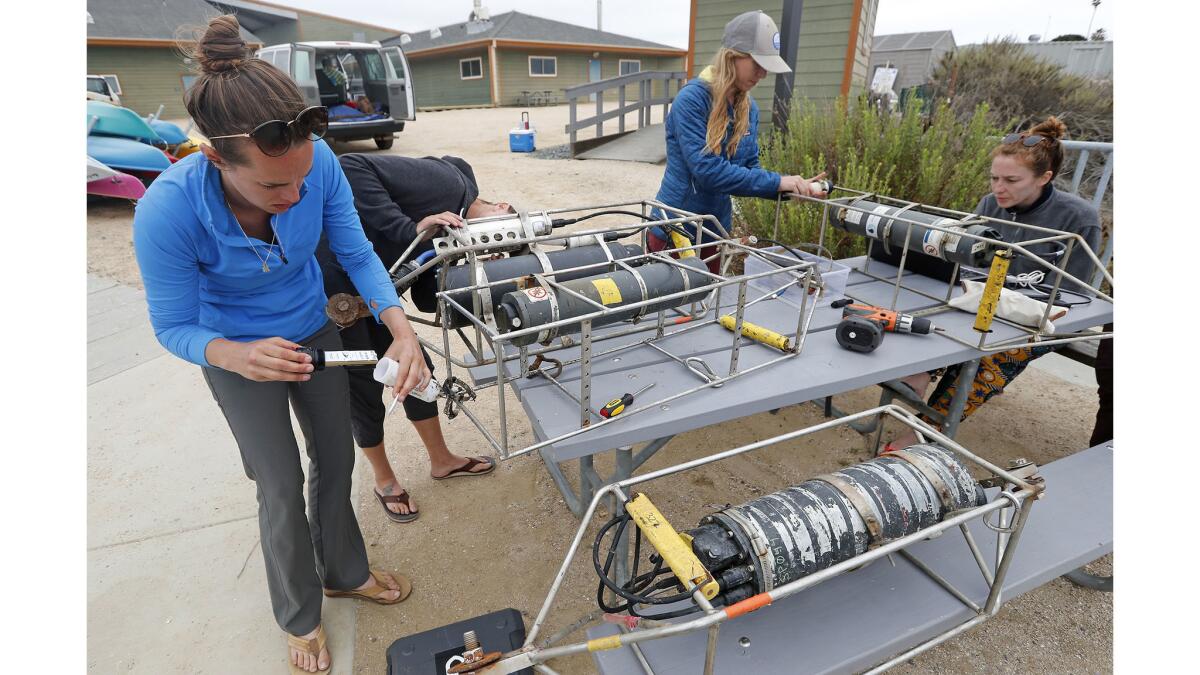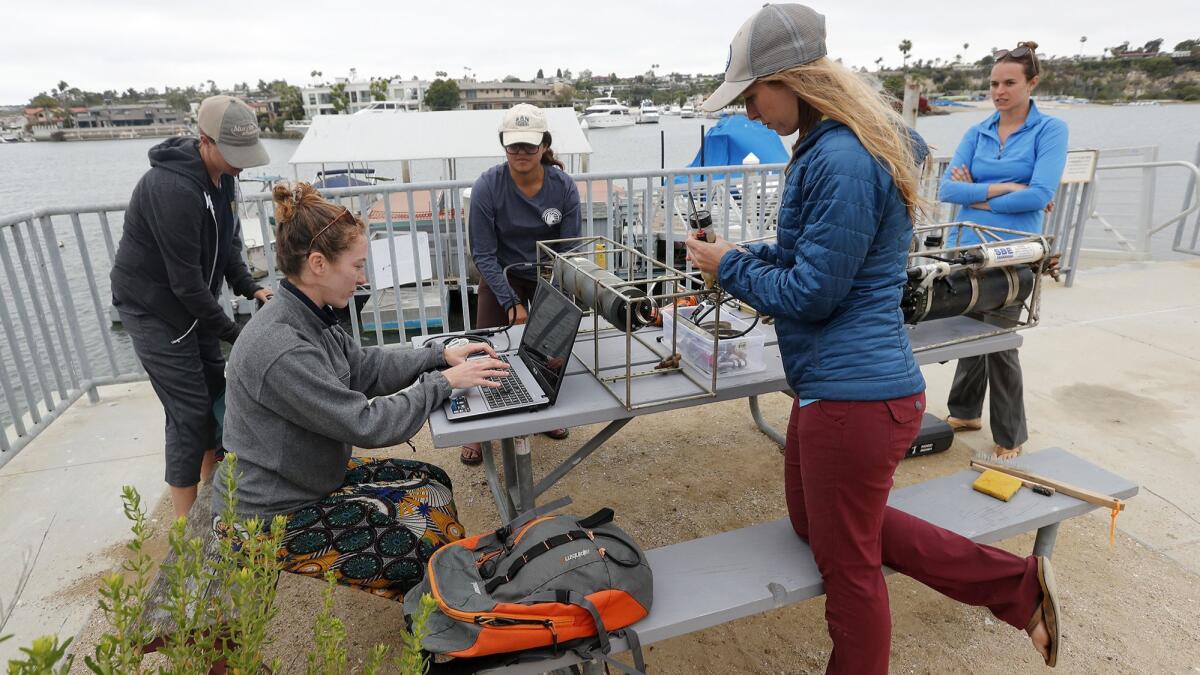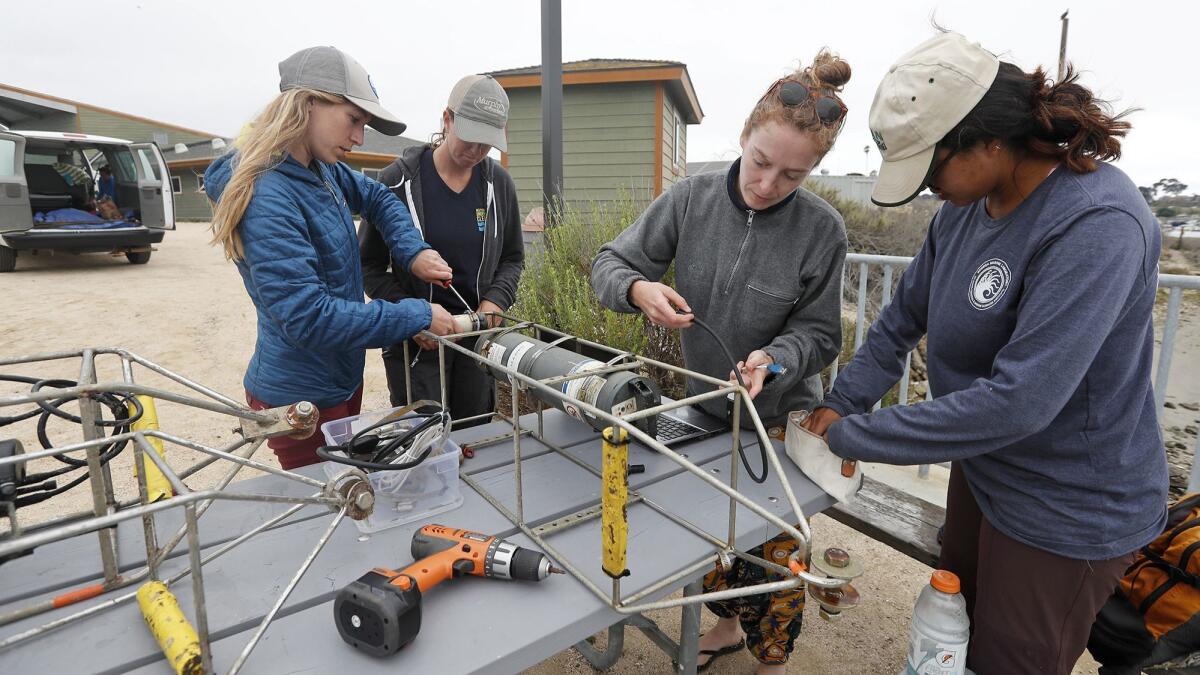Researchers in Newport optimistic that eelgrass can reduce carbon and acidity in seawater

- Share via
As the data roll in, University of California scientists are more optimistic that eelgrass, like the kind that grows around Newport Beach, can lessen ocean acidity and make the water more hospitable to ecologically valuable organisms.
Researchers from UC Davis and UC Santa Cruz, with help from Costa Mesa-based environmental organization Orange County Coastkeeper, have been studying the pH and oxygen levels, temperature and salinity inside and outside eelgrass beds along the California coast, including in Upper Newport Bay. By using sensors, they’re getting preliminary answers to the question of whether eelgrass — an underwater plant with quarter-inch-wide leaves that can grow up to 3 feet long — can remove carbon from seawater and help maintain healthy water chemistry.
“We think so, sometimes,” Melissa Ward, a doctoral student in ecology at UC Davis, said Tuesday as she brushed the lawn-clipping-like remains of bryozoa — a tiny aquatic invertebrate — off a sensor just hauled ashore. “We’re just trying to figure out why and when.”
Ward and other members of her research team pulled up sensors this week from the shallow water a few yards from the Back Bay Science Center, gathering a month’s worth of data to add to the results they collected from the area last summer.
Researchers also have deployed sensors in the Santa Cruz and Bodega Harbor areas.

The conclusions are incremental and lead to more possibilities, like the prospect that eelgrass’s effects are tied to the seasons or tides. The research continues.
Ward said eelgrass’s other benefits — including oxygen production, sediment stabilization and serving as a habitat and nursery for fish and invertebrates — are well-established. Now scientists want to know whether eelgrass can provide “carbon service.”
The idea is that, through photosynthesis, eelgrass can absorb carbon and fight ocean acidification — which is caused by the sea taking in carbon dioxide from the atmosphere — and counter the effects of climate change.
In addition, Ward said, research like this can influence eelgrass restoration efforts and the future of aquaculture such as oyster farming.

Twitter: @Daily_PilotHD
All the latest on Orange County from Orange County.
Get our free TimesOC newsletter.
You may occasionally receive promotional content from the Daily Pilot.








